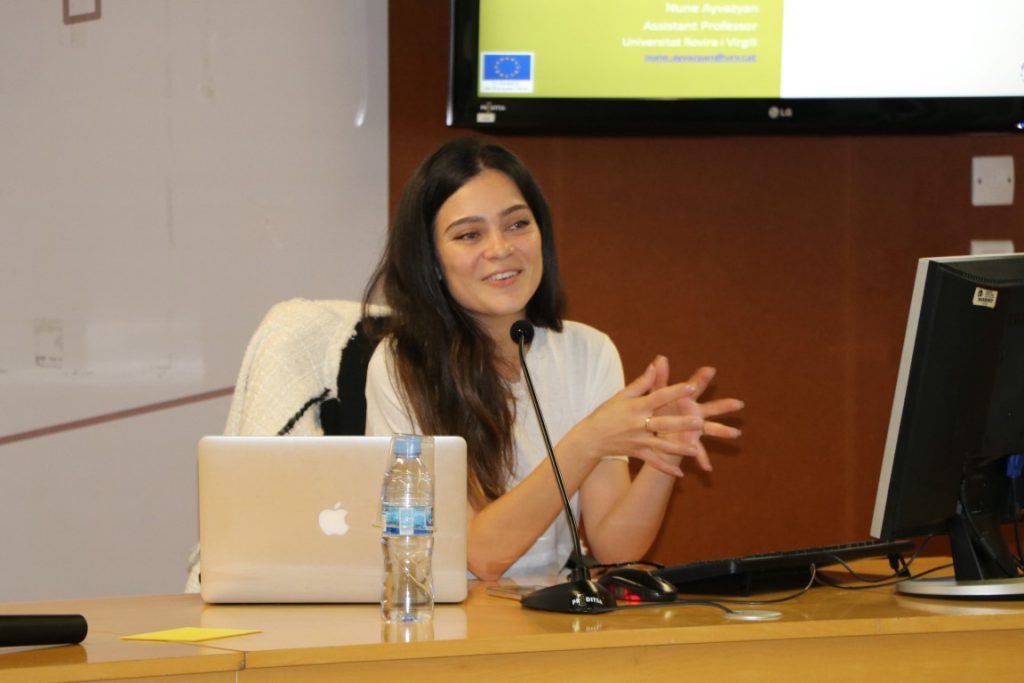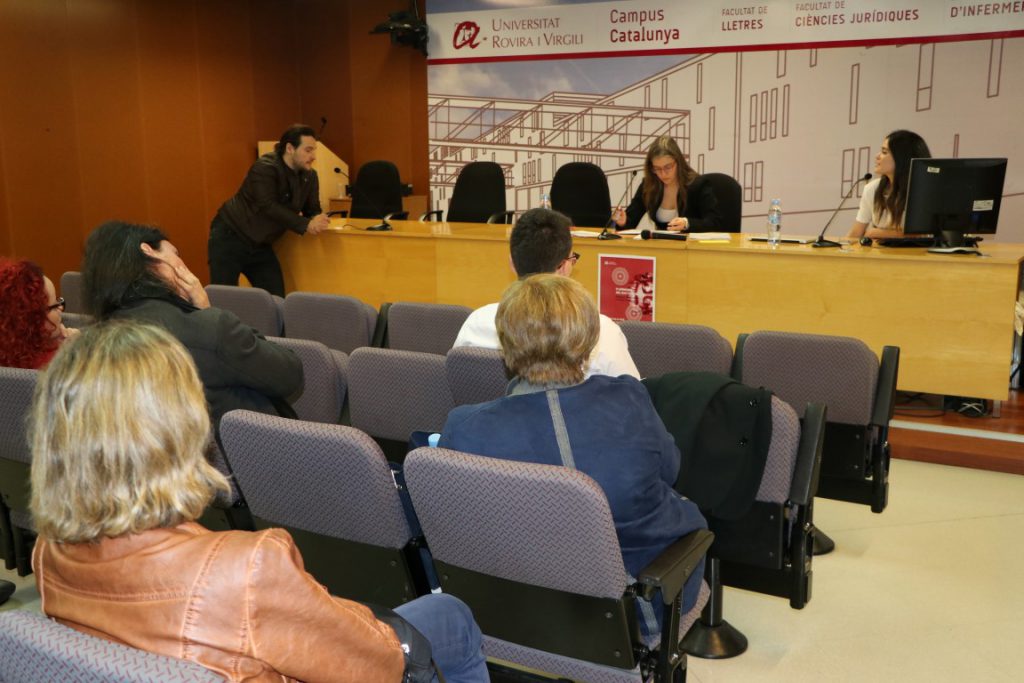09/05/2018
Nune Ayvazyan, doctoral graduate from the URV: “Networking has opened up many doors for me during my doctoral degree”
21 students on the Doctoral Degree in Humanistic Studies present their research during a series of seminars to exchange knowledge and solve problems through interactions with fellow students

21 students on the Doctoral Degree in Humanistic Studies present their research during a series of seminars to exchange knowledge and solve problems through interactions with fellow students
On 7 and 8 May, the Doctoral Programme in Humanistic Studies held the fourth edition of its Doctoral Student Seminars, during which doctoral students publicly presented certain aspects of their doctoral studies. Although the students were from widely differing disciplines, in terms of methodology they had many aspects in common. Consequently, according to Maria Bargalló, who coordinates the programme, students find that sharing knowledge helps them to solve problems during their research. Nune Ayvazyan has already completed the process of writing her thesis and later this year will be awarded the Special Doctoral Prize. Hence during her talk she discussed the importance of making sure that you go to the same places as those people who can give you opportunities: “Networking has opened up many doors for me during my doctoral degree”.
During the seminars, 21 doctoral students gave 15-minute presentations on their theses before answering questions and debating with their peers. In this way they were able to solve specific problems regarding the research process by listening to the experiences of other doctoral students. For Maria Bargalló, the seminars provide the researchers with the “training they need to disseminate research aimed at a specific public”.
Also participating in the seminars were two doctoral graduates from the URV’s programme in Humanistic Studies, Elga Cremades, professor of Catalan at Masaryk University in Brno, Czech Republic, and Nune Ayvazyan, who has specialised in translation and has participated in various European projects. Ayvazyan emphasised the importance of joining teams with EU funding because they offer doctoral students a series of opportunities that would otherwise be difficult to come by, such as research contacts and funding to cover trips and study visits.

During her presentation, entitled “Milestones and difficulties for doctoral students: people are the key”, Ayvazyan highlighted the importance of going to the conferences, working meetings and international seminars attended by the leading researchers in your given scientific field: “You need to be there physically to find out who they are and shake hands with them; who knows, they might be able to offer you an interesting project?” She went on to recount how in one of these meetings, a member of a project offered her work, which shows that “researchers are following your progress and know who you are, even if you think they don’t”.
For her, working on a project and doing her thesis was “like doing two theses at the same time”, hence her recommendation to participate in European research projects with members from other countries. She also recommended keeping up with little-known calls for grant applications because that enabled her, for example, to gain a grant of 4,200 euros from the Barcelona Economic Society to carry out a doctoral research visit at the Middlebury Institute of International Studies, in California.
Finally, she encouraged those in attendance to remember that all doctoral students go through the same experience, with the same doubts and anxieties, but that “the most important thing is not to get stuck, but rather to start networking, because that is where the opportunities lie”.
More news about: Doctoral Degree in Humanistic Studies
